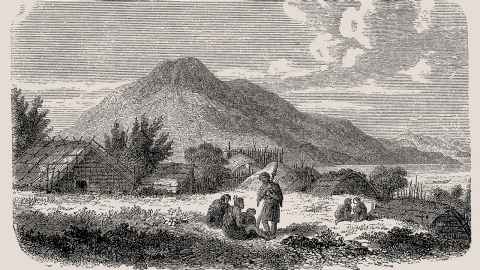The NZ history curriculum - a Trojan horse
17 September 2019
Opinion: Elizabeth Rata argues inclusion of NZ history in schools should be a start, not an end, and should lead to agreed nationwide curricula in other subjects.

Like many New Zealanders I am thrilled our history is to be included in the national curriculum. There will be plenty of debate between now and 2022 about what topics will be selected and that’s all for the good.
But there is another even more important effect of the decision which makes me hope for a full curriculum breakthrough. At last there is a dawning realisation that just as we don’t teach our own history, are there other subjects we don’t teach either?
In the discussions about the history curriculum, various commentators, including the Prime Minister, appear puzzled that we don’t actually know what history is taught. But it isn’t only history that is a puzzle. It’s all subjects, and behind those subjects, it’s the New Zealand Curriculum itself.
Bizarrely we have a national curriculum that isn’t a national curriculum. It’s a localised one. This means local schools and teachers decide what to teach. That is why we don’t know who is being taught what. And now, in a curriculum that fiercely rejects national prescription, New Zealand history will stand alone as a prescribed subject. Will this anomaly lead to calls for prescribed content for other subjects too? I hope so.
At present the curriculum is a lottery. New Zealand’s slide down the international education rankings this century as well as persistent inequities in the system indicate that some students are taught a rich curriculum while others are not. In fact the Ministry of Education justifies its blind commitment to the localised curriculum in terms of addressing these inequities. This ignores the obvious. Educational success comes from the rich knowledge found in academic subjects. All students should, as a right, be taught this knowledge.
South Africa is one of a few countries that, like New Zealand, began introducing a localised curriculum in the late 1990s. The reason was the same as ours - the misguided belief that localisation was somehow more equitable. Unlike New Zealand however, South Africa quickly realised its error and now has a standardised national curriculum - for the same equity reasons. It’s the type of curriculum that is the norm for developed countries. The puzzlement on the faces of those in government who are only just realising that we don’t know what our children are being taught, suggests they, with many other New Zealand parents, believe we also have a standarised curriculum. But they are wrong.
Look at what is actually in the New Zealand Curriculum. It’s on the Ministry of Education website. You’ll find an aspirational document filled with values and principles but little actual knowledge. To be fair there is an associated document containing Achievement Objectives. But there is a serious problem with these as well. Achievement Objectives refer to what students should be able to do with the knowledge that individual schools and teachers will select. Its an outcomes-based approach which puts the cart (what you can do with what you know) before the horse (what you know).
For example, a history Achievement Objective requires students to ‘understand how historical forces and movements have influenced the causes and consequences of events of significance to New Zealanders’. But there is no accompanying knowledge required for such understanding. So where does the knowledge come from? At present there is a range of sources – from outstanding history teachers at one end to irrational bloggers at the other.
We need a truly national education system to ensure all children, no matter where they live and no matter their home circumstances, receive the best knowledge available. That requires leadership and organisation at the national level.
In its absence teachers are curriculum makers, curriculum-designers, and curriculum deliverers? Even the best teachers cannot carry such an impossible load. It is time the Ministry of Education put the curriculum at the centre of the system where it belongs.
A compulsory New Zealand history curriculum for primary and secondary schools is a start. It may serve as a Trojan horse to expose the damaging effects of our localised curriculum. It may also provide an exemplary example of what a truly national curriculum should be. If so, then this Trojan horse is welcome
Professor Elizabeth Rata is the Director of the Knowledge in Education Research Unit in the Faculty of Education and Social Work.
This article reflects the opinion of the author and not necessarily the views of the University of Auckland.
Used with permission from Newsroom The NZ history curriculum - a Trojan horse 17 September 2019.
Media queries
Alison Sims | Research Communications Editor
DDI 09 923 4953
Mob 021 249 0089
Email alison.sims@auckland.ac.nz